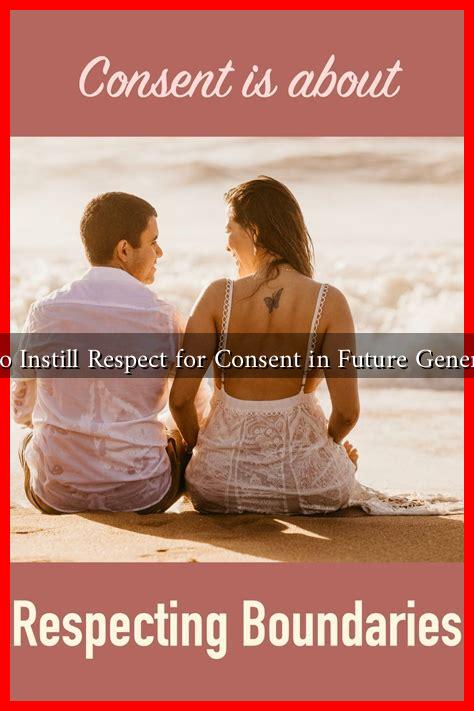-
Table of Contents
How to Instill Respect for Consent in Future Generations
In recent years, the conversation surrounding consent has gained significant traction, particularly in the context of sexual education and interpersonal relationships. As society evolves, it becomes increasingly important to instill a deep respect for consent in future generations. This article explores effective strategies for teaching consent, the role of parents and educators, and the importance of creating a culture that values individual autonomy.
The Importance of Consent Education
Consent is not just a legal term; it is a fundamental aspect of human interaction. Understanding consent helps individuals navigate relationships, ensuring that all parties feel safe and respected. According to a study by the National Sexual Violence Resource Center, 1 in 5 women and 1 in 71 men will be raped at some point in their lives. These alarming statistics highlight the urgent need for comprehensive consent education.
Strategies for Teaching Consent
Instilling respect for consent begins at an early age. Here are some effective strategies for teaching children and adolescents about consent:
- Start Early: Begin discussions about consent with young children. Teach them about personal boundaries and the importance of asking for permission before touching someone else.
- Use Age-Appropriate Language: Tailor your discussions to the child’s age. For younger children, focus on concepts like “yes” and “no,” while older children can engage in more complex discussions about emotional and physical boundaries.
- Model Respectful Behavior: Children learn by observing adults. Demonstrate respect for others’ boundaries in your interactions, and encourage them to do the same.
- Encourage Open Communication: Create an environment where children feel comfortable discussing their feelings and experiences. This openness fosters trust and encourages them to speak up if they feel uncomfortable.
- Utilize Role-Playing: Engage children in role-playing scenarios to practice asking for and giving consent. This interactive approach helps them understand the nuances of consent in real-life situations.
The Role of Parents and Educators
Parents and educators play a crucial role in shaping children’s understanding of consent. Here are some ways they can contribute:
- Integrate Consent into Curricula: Schools should incorporate consent education into health and physical education classes. This can include discussions about healthy relationships, communication skills, and the legal aspects of consent.
- Provide Resources: Parents can seek out books, workshops, and online resources that focus on consent education. Organizations like RAINN offer valuable information and tools for parents and educators.
- Encourage Peer Discussions: Facilitate conversations among peers about consent. Group discussions can help normalize the topic and empower young people to share their thoughts and experiences.
Creating a Culture of Consent
Beyond individual education, fostering a culture that respects consent is essential. This can be achieved through:
- Community Engagement: Local organizations can host workshops and events focused on consent education, bringing together families, schools, and community members.
- Media Representation: Encourage media outlets to portray healthy relationships and consent in their programming. Positive representation can influence societal norms and expectations.
- Policy Advocacy: Support policies that promote consent education in schools and communities. Advocacy can lead to systemic changes that prioritize consent as a fundamental value.
Conclusion
Instilling respect for consent in future generations is a multifaceted endeavor that requires the collaboration of parents, educators, and communities. By starting early, using appropriate language, modeling respectful behavior, and creating a culture that values consent, we can empower young people to navigate their relationships with confidence and respect. As we work towards a society that prioritizes consent, we take significant steps toward reducing violence and fostering healthier interpersonal dynamics. The responsibility lies with all of us to ensure that future generations understand the importance of consent and the power of their own voices.

